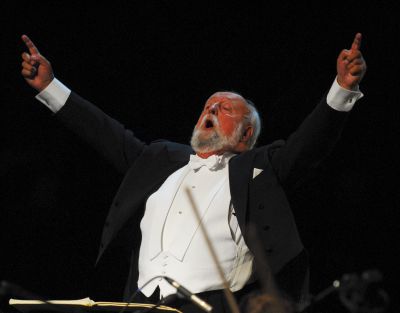Bronisław Huberman: From child prodigy to resistance fighter against National Socialism

Huberman wrote to Furtwängler that his separation from Germany left him with a deep “ache as a friend of my German friends, as an interpreter of German music who sorely misses the resonance of his German audience”, then went on to pass judgement on Furtwängler in a letter written in October 1933: “This mixture of idealism, opportunism, vanity and cultural attitude […], from positioning his handful of Jewish orchestra members in the first stands at the Paris concert hall right up to accepting an honour from a Prussian State Council; that’s just going too far!“[36] Huberman never set foot on German soil again. From 1934, he directed a master class at the state-run Vienna Music Academy for two years. In July/August 1935, as the Wiener Zeitung reported, the Reich Chamber of Music in Berlin asked the pianist Siegfried Schultze to cut his ties to Huberman. Huberman’s “anti-German” conduct was given as the reason.[37]
In March 1936, Huberman wrote an “Open letter to German intellectuals” which was published in The Manchester Guardian newspaper in English.[38] In it, Huberman once again referred to his letter to Furtwängler writing: “Two and a half years have now passed, countless people have been thrown in concentration camps, in prison, chased out of the country, sent to their death by murder or suicide […] before the whole world, I accuse you, German intellectuals, you non-Nazis, of being the real culprits in all the Nazi crimes, in this mournful downfall of a superior people that shames and threatens our entire white race. […] German spiritual leaders with the international importance and freedom of movement of a Richard Strauss, Furtwängler, Gerhart Hauptmann, Werner Krauß, Kolbe, Sauerbruch, Eugen Fischer, Planck among others, who until yesterday represented the German conscience, the German genius […], from the very start have reacted in no other way to this attack on mankind’s most sacred assets than to flirt, make deals, cooperate. Germany, the people of poets and philosophers, the world, not just the hostile world, your friends wait in dismay for a word of liberation!”[39]
[36] Letter from Huberman to “Bn.” dated 18 October 1933, Huberman Estate (see Note 1), cited from von der Lühe 2004 (see Literature), page 74
[37] Theater und Kunst. Die Reichsmusikkammer gegen Huberman, in: Wiener Zeitung, published by the Federal Administration, 232nd edition, No. 211 dated 2 August 1935, page 8, online resource: http://anno.onb.ac.at/cgi-content/anno?aid=wrz&datum=19350802&seite=8&zoom=25
[38] Typed manuscript in German in the Huberman Estate (see Note 1). In 1944, when Huberman was being awarded an honorary doctorate by the Jewish Institute of Religion in New York, the German version of his letter was published again, this time in the German-Jewish newspaper for people in exile entitled Aufbau from the New York-based New World Club (bibliographic information and online resource see Sources).
[39] Cited from the 1944 version (see Note 38)












